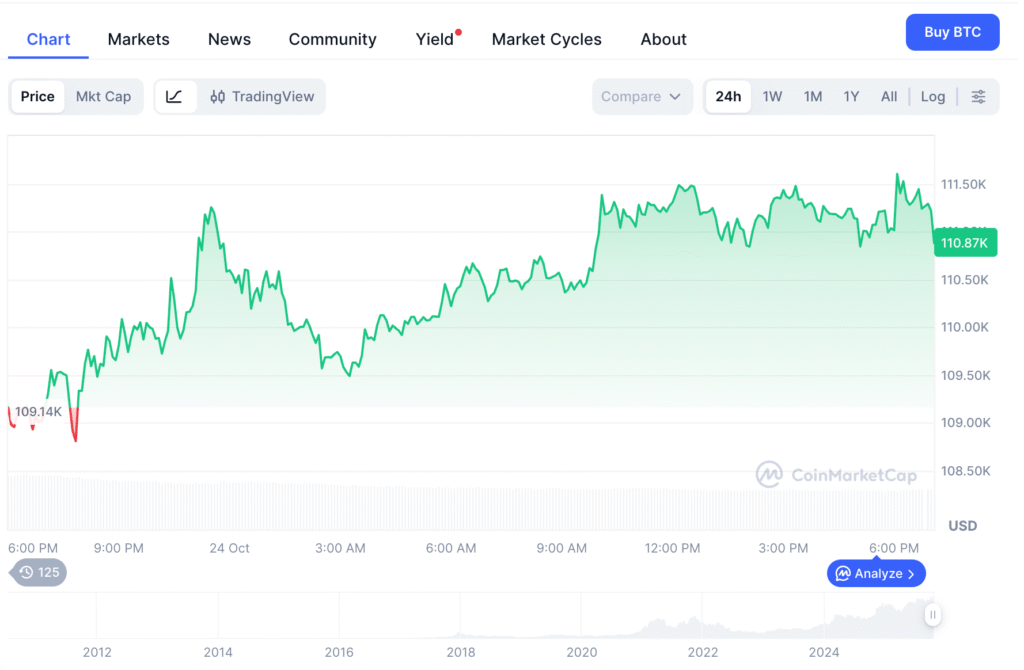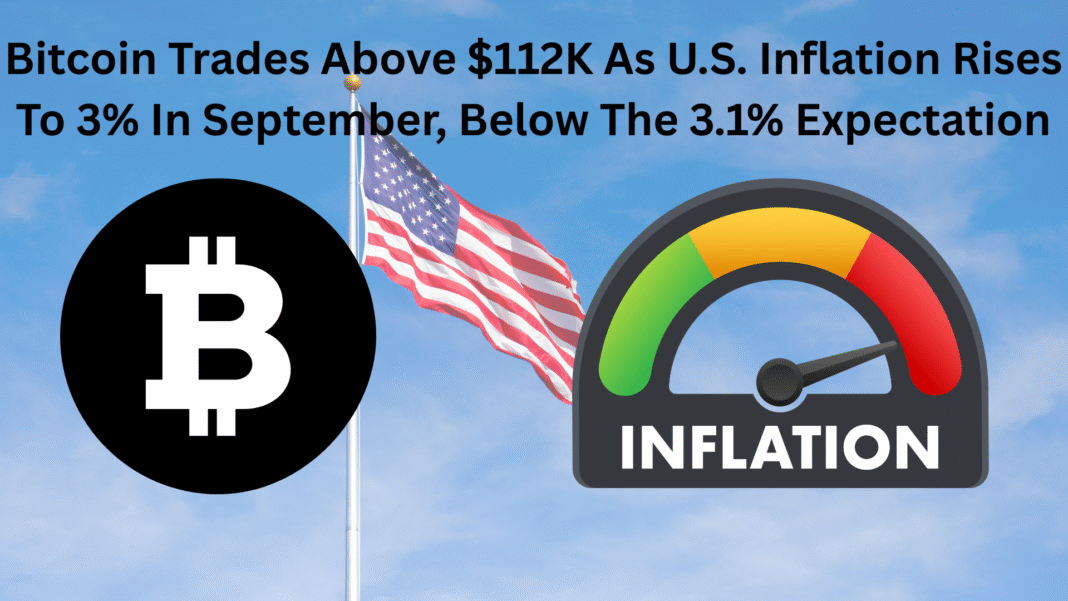Bitcoin had quite a jump today as it went above $112K line and then slowly came down to $110,578.77. It is still up by 1% in the last 24 hours, and the 24-hour trading volume is down by 23.66%. The global market cap is at $2.21 trillion.

This happened as the effects of President Trump’s tariffs continue to be felt, as the Consumer Price Index (CPI) increased by 3% annually in September, falling short of experts’ projections.
Inflation hits the USA
Gasoline and energy prices increased 4.1% and 1.5% throughout the month, respectively, leading to price increases. Prices for housing, travel, entertainment, home furnishings and operations, and clothing all went up.
The cost of motor vehicle insurance, used automobiles and trucks, and products and services in the communications business dropped in September.
Also Read: Bitcoin Falls Below $109,000 As Traders Brace For U.S. Inflation Data
Bitcoin’s Price
According to CoinSwitch Markets, the news of an impending US-China presidential summit boosted hope amid a time of trade uncertainty, and the broader cryptocurrency market saw a minor uptick in mood. BTC’s crucial support is located close to $109K, while resistance is above $111.5K. A break over this mark may open the door to $113K–$114K, analyst says.
After a steep decline last week, Bitcoin is making an effort to rebound, but the market is still at a crucial juncture. Despite the price’s recovery, the general attitude is still cautious. Whether this rebound is a true turnaround or only a short-term respite before another leg down is the crucial question.
Developments for Bitcoin
Institutional and Banking interests in Bitcoin are still on the rise. JPMorgan Chase is preparing to permit institutional customers to use Ether and Bitcoin as loan collateral. By the end of the year, the project will be launched and available to clients worldwide.
Elon Musk has long been a long-time advocate for Bitcoin and the cryptocurrency space. He went one step further and asserted that, in contrast to fiat currencies, Bitcoin cannot be counterfeited since it is an energy source.
What does this mean?
Economists say the Trump administration’s tariffs are contributing to the slow increase in inflation. The impact of the import levies on consumers has been lessened since American companies are bearing part of the expenses in the form of decreased earnings.
The crypto market and especially Bitcoin have been closely affected by the rising inflation, so people have to keep a close eye on how the inflation, along with the Fed rates, turns out on the price of Bitcoin.
Also Read: Marathon Holdings Boosts Bitcoin Holdings To 736 BTC In September, Total Holdings Rise To 52,850


